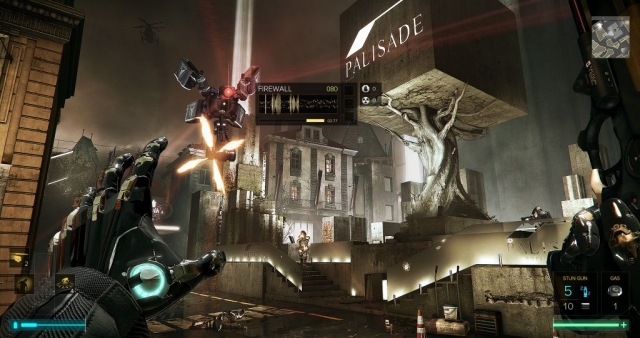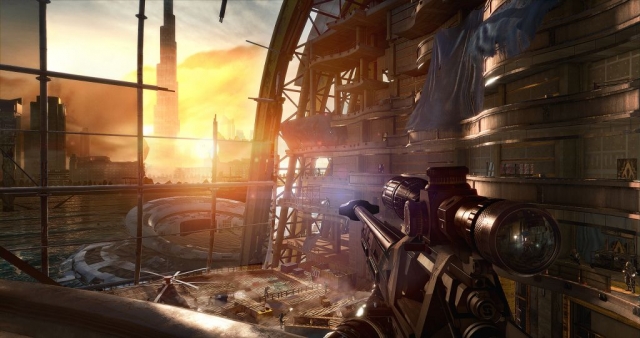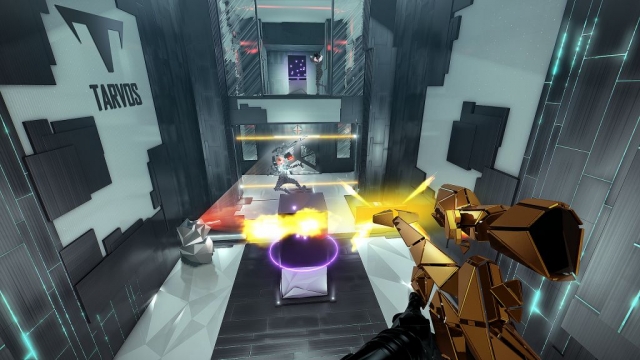Deus Ex: Mankind Divided

The two biggest strikes against Deus Ex: Mankind Divided are that it’s probably a bit too easy and that it spends most of its plot and world-building on a tone-deaf metaphor. Neither are deal-breakers, and in most of the ways that count, it’s a pretty decent sequel to Human Revolution.
Mankind Divided is set two years after the previous game, and apparently builds off the ending where Adam Jensen chose to destroy Panchea entirely, leaving no one around who knew the truth about what happened there. As far as the rest of the world knows, one day every human being with cybernetic augmentations went into a violent, murderous frenzy. It’s come to be known as the Incident, and it’s caused augmented people the world over to be, at best, treated like second-class citizens.
At the start of the game, Adam Jensen has taken a new day job as an Interpol agent, working and living in Prague as a member of a new anti-terrorism task force. At the same time, he’s working with a group of underground hackers to spy on his employers, in an attempt to unravel the conspiracies that led to the Incident. In the course of three days, a mission in Dubai goes south due to the intervention of a strange group of anonymous augmented gunmen, and Adam barely survives a terrorist attack on a train station near his apartment. As per usual, Adam gets to juggle his agenda and loyalties while attempting to figure all of this out.
The typical approach for a returning protagonist in a game like this one is for the developers to push him or her back to square one, so you get all the fun (decide for yourself just how ironic the word “fun” is in this sentence) of building him or her back up.
Mankind Divided takes an interesting approach to this. In the opening mission, you have a fairly extensive loadout of cybernetic augmentations for Adam, but immediately after that, the train station bombing knocks out his system for a while. Until you’re able to get them fixed, Adam is almost a normal human again, and just getting across town to your doctor is a job in itself. Once you manage that, you’re given a giant pile of Praxis kits and left alone, enabling you to extensively customize Jensen to your heart’s content.
I can appreciate this as it’s a deviation from the norm. A lot of games would’ve stuck Jensen in a brand-new body or steal all his equipment or something, but letting you go whole-hog on augmentations roughly two hours into the game does give you a real sense of how powerful Jensen is supposed to be. It’s a little easier to see the point of all the anti-augmentation propaganda in the game when I’m capable of playing “Bowling for Random Pedestrians” by chucking dumpsters down the street.
It also means that once you reach Jensen’s doctor, the game might as well roll its credits. If anything, you’re too capable, and nothing really feels like it poses a challenge after that. Human Revolution’s primary issue was that Jensen was reasonably good at all facets of gameplay right out of the box, which made your approach to any given situation less about his capability and more about your whims and efficiency. Mankind Divided just compounds that issue for much of its first half by making Jensen the one guy in the room who’s a stealth-capable cyborg killbot. In a world of knife fights, Adam Jensen has a machine gun and close air support.
With that caveat, Mankind Divided still carries forward the tradition of Deus Ex in that it’s endlessly and surprisingly manipulable. Depending on your approach and what upgrades you’ve installed, you can take a variety of approaches to any given situation. I realized a few hours into my run that I’d turned it into a mid-2000s adventure game, as Adam’s social-cues augmentation let me talk a drug dealer into dismantling her own supply chain. I couldn’t remember the last time I’d needed to fire a gun, as when combat became necessary due to my own mistakes, I could usually resolve it with one of Adam’s incredibly satisfying unarmed takedowns.
I could just as easily have turned into the Metal Gear Solid ninja and killed everyone in, near, or around that building. For that matter, I could’ve just not taken any cybernetic augmentations at all and gone super hard mode on the entire thing. Finding out the sheer number of potential resolutions to a given mission is half the fun of a Deus Ex game, and at that, Mankind Divided succeeds admirably.
The primary issue with the game really has nothing to do with how it plays. The plight of augmented people, or “augs,” in Mankind Divided is the focal point of the entire game, to the point where you can get dressed down by the cops if you get on the wrong subway train. A lot of the world-building is clearly patterned after real-world racial tensions, to the point where several businesses have “augs only” entrances and you can spot a couple of people in “Aug Lives Matter” shirts.
It’s the sort of thing that science fiction has done for decades, most notably with characters like the X-Men, but it doesn’t really hold up on consideration. If the idea is that the rampages from two years ago have made people suspicious or actively angry at augmented people, why would anyone be trying to deliberately oppress those people, particularly when most of their augmentations are medical implants or prosthetics? At worst, you’re consigning the ill and infirm to actual ghettos; at best, you’re encouraging genuinely superhuman people like Jensen himself to rebel against the system. It’s not as if the Incident was a deliberate rebellion.
By the same token, wouldn’t it be easier for most of them to simply get their augmentations removed, or to actively research much less visible augmentations? Adam himself could pass as a baseline human if he wore gloves and a pair of normal glasses. Even if you disregard the poor taste of drawing on real-world racism for the game’s world-building, the conflict between baseline and augmented humans is contrived.
That’s Mankind Divided in a nutshell: it’s painfully easy and the story falls apart under scrutiny, but it still hits a lot of the buttons that make a Deus Ex game what it is.
Reviewed By: Thomas Wilde
Publisher: Square Enix
Rating: 80%
——————————————————————————–
This review is based on a digital copy of Deus Ex: Mankind Divided for the PlayStation 4 provided by Square Enix.
 Game Over Online
Game Over Online













